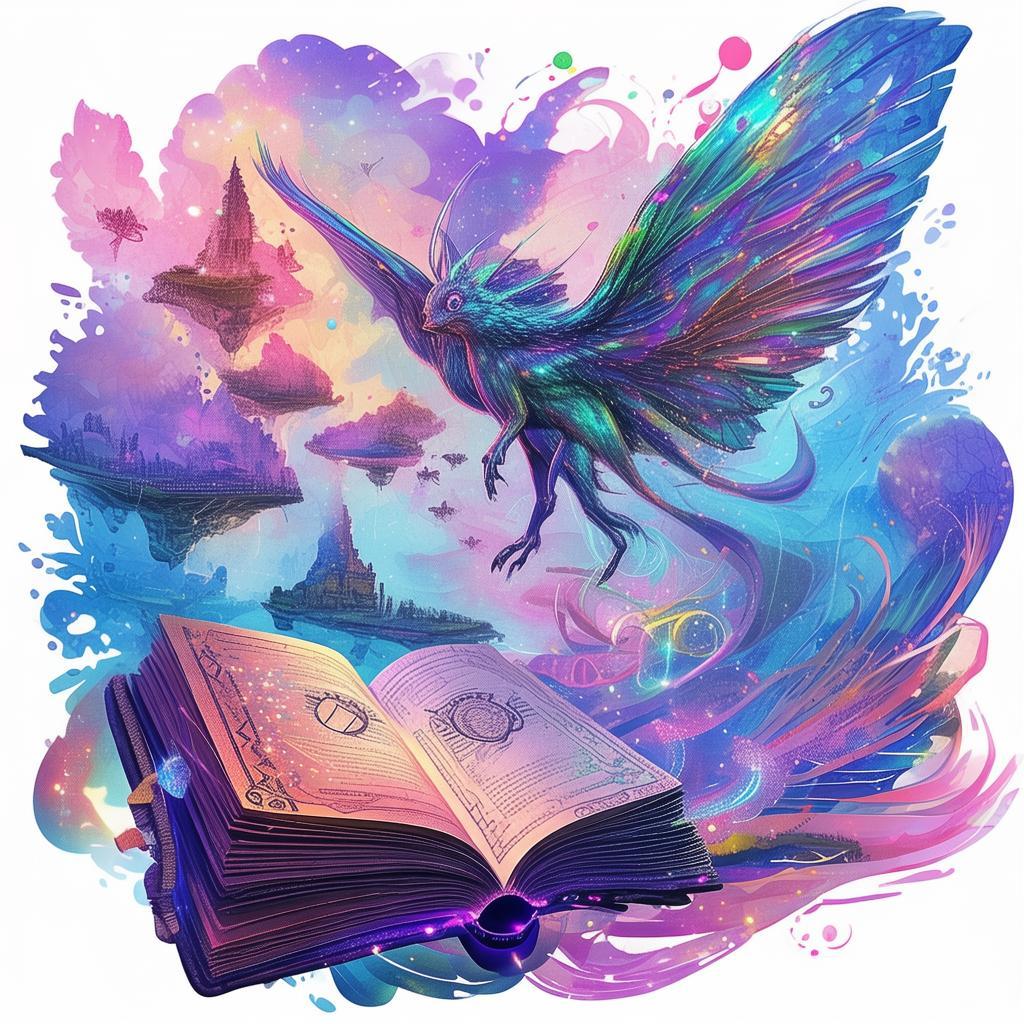Whispers of the Pen: A Cultivator's Quest
In the bustling heart of Paris, under the golden glow of streetlamps, sat an elderly man named Arthur. His hands trembled as he held a worn-out journal, its pages filled with the musings of a writer who had seen more than his share of life's seasons. Arthur was no ordinary writer; he was a cultivator, a creator who had dedicated his life to the pursuit of literary mastery.
Arthur had spent his days weaving stories of romance, mystery, and adventure, each more enthralling than the last. But now, with age catching up, he found himself at a crossroads. His novels were still bestsellers, but he felt an emptiness within. It was as if the words on his page had lost their magic, their ability to transport readers to new worlds and adventures.
One rainy afternoon, as Arthur sat by his window, the raindrops tapping against the glass like a drumbeat of fate, he received an anonymous letter. The letter was short, but its words cut through the fog of his thoughts like a blade:
"You have reached the peak of your craft, but your journey is far from over. The path of cultivation awaits you."
Arthur was intrigued. The idea of cultivation had always fascinated him, a blend of the mystical and the practical, a way of refining oneself both inwardly and outwardly. He decided to explore this newfound path, to see if it could breathe new life into his writing and into himself.
Arthur's journey began with the simplest of tasks: observing the world around him with a cultivator's eye. He walked through the streets of Paris, his senses heightened, taking in the smallest details—the way the light played across a woman's face, the way the wind danced through the trees, the way a child's laughter carried on the breeze. Each observation became a seed, a story waiting to be sown.
He started small, practicing mindfulness, sitting for hours in his study, focusing his thoughts, allowing the chaos of the world to fall away. Gradually, he began to notice changes within himself. His thoughts were clearer, his emotions more profound, and his writing more evocative.
One day, while walking in the Luxembourg Gardens, Arthur came across a young artist painting a scene of a serene lake. The artist's strokes were fluid, her colors vibrant, and her subject matter deeply moving. Arthur approached her and struck up a conversation, asking her about her process and her inspiration.
"I don't just paint what I see," the artist replied, her eyes twinkling with wonder. "I paint what I feel. The world around me is just a canvas for my emotions."
This conversation became a turning point for Arthur. He realized that his writing had become too focused on the external world, neglecting the inner landscape. He began to explore his emotions, his fears, his joys, and his sorrows, weaving these into his stories.
As Arthur's cultivation deepened, his stories took on a new life. Characters became more complex, emotions more authentic, and settings more vivid. He began to experiment with different forms, writing poetry, plays, and even a novel that combined elements of fantasy and cultivation.
Word of Arthur's transformation spread, and soon he found himself sought after for his insights into both cultivation and writing. He gave lectures, led workshops, and published a series of essays that explored the intersection of the two arts.
One of his most popular essays was titled "The Pen as a Cultivator's Tool," where he wrote:
"The pen is not just a tool for recording thoughts and ideas; it is a cultivator's tool. With each stroke, we shape not just the world on the page, but also our own inner world. The act of writing becomes a form of meditation, a way of refining our thoughts, emotions, and perceptions."

Arthur's journey continued, and with each step, he discovered new depths within himself and his art. He began to write stories that transcended the boundaries of genre, touching on the universal truths that lie at the heart of human experience.
In the end, Arthur's journey was not just about mastering his craft; it was about mastering himself. He discovered that true mastery comes not from the outside, but from within. It is a journey of self-discovery, of emotional and intellectual growth, and of the pursuit of a higher truth.
As he sat in his study one final time, with the glow of the fire casting a warm light across his room, Arthur felt a sense of peace and fulfillment. He knew that his journey had only just begun, and that the pen would continue to be his guide on the path to mastery.
✨ Original Statement ✨
All articles published on this website (including but not limited to text, images, videos, and other content) are original or authorized for reposting and are protected by relevant laws. Without the explicit written permission of this website, no individual or organization may copy, modify, repost, or use the content for commercial purposes.
If you need to quote or cooperate, please contact this site for authorization. We reserve the right to pursue legal responsibility for any unauthorized use.
Hereby declared.









